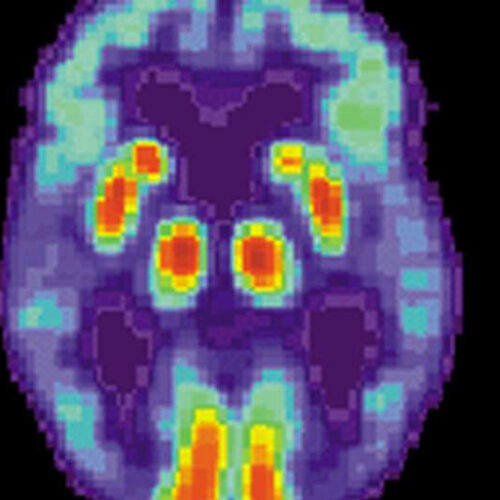by American Academy of Neurology Credit: Unsplash/CC0 Public Domain A new study shows that people who eat a diet that includes at least half a serving per day of foods high in flavonoids like strawberries, oranges, peppers, and apples may have a 20% lower risk of cognitive decline. The research is published in the July 28,...
Tag: <span>Cognitive decline</span>
Cognitive decline may help predict future fracture risk in women
by Garvan Institute of Medical Research Credit: CC0 Public Domain Researchers led by the Garvan Institute of Medical Research have discovered a link between cognitive decline and a faster rate of bone loss and found that cognitive decline over five years increased future fracture risk in women. The association between cognitive decline and bone loss was weaker...
Inflammatory proteins may slow cognitive decline in aging adults
by Massachusetts General Hospital PET scan of a human brain with Alzheimer’s disease. Credit: public domain Research has previously linked inflammation to Alzheimer’s disease (AD), yet scientists from Massachusetts General Hospital (MGH) and the Harvard Aging Brain Study (HABS) have made a surprising discovery about that relationship. In a new study published in Alzheimer’s & Dementia: The Journal...
A prescription to ward off cognitive decline – without medication
A clinical neuropsychologist with expertise in dementia shares what the science tells about improving memory and thinking without drugs. There’s a pill for many ailments, but aging isn’t one of them. And while some mounting difficulty in thinking and processing is expected as you grow older, cognition experts say you can take steps to slow...
FDA grants historic approval to Alzheimer’s drug designed to slow cognitive decline
By Adam Feuerstein and Damian Garde June 7, 2021 Reprints ALEX HOGAN/STAT The Food and Drug Administration on Monday approved the first new treatment for Alzheimer’s disease in nearly two decades, a landmark decision that has been eagerly awaited by millions of Americans diagnosed with the condition but that will be hotly contested by some in the...
Poor sleep predicts long-term cognitive decline in Hispanics more so than in whites
by University of Miami Leonard M. Miller School of Medicine Credit: Pixabay/CC0 Public Domain Poor sleep impacts the risk of long-term cognitive decline in Hispanic/Latino middle aged and older adults differently than it does in non-Hispanic adults, according to research led by University of Miami Miller School of Medicine neurology faculty and the largest long-term study...
Methionine Restriction Greatly Reduces Measures of Cognitive Decline in Mice
Researchers here applied three months of a methionine restricted diet to old mice, and found that it greatly reduced age-related cognitive decline, as measured in maze tests. The methionine restricted animals perform more like young animals than like their unrestricted peers. Methionine is an essential amino acid essential to all protein synthesis. Methionine sensing is one of the more important...
Can changes in driving habits predict cognitive decline in older adults?
Every day in the U.S. in 2018, motor vehicle crashes killed more than 20 people over age 65 and injured almost 700. Older adults are the most responsible drivers of any age group — they tend to obey speed limits and avoid driving at night and in bad weather, for example — but the physical...
Differences in walking patterns could predict type of cognitive decline in older adults
LAWSON HEALTH RESEARCH INSTITUTE Canadian researchers are the first to study how different patterns in the way older adults walk could more accurately diagnose different types of dementia and identify Alzheimer’s disease. A new study by a Canadian research team, led by London researchers from Lawson Health Research Institute and Western University, evaluated the walking...
Metformin treatment linked to slowed cognitive decline
GARVAN INSTITUTE OF MEDICAL RESEARCH Metformin is the first-line treatment for most cases of type 2 diabetes and one of the most commonly prescribed medications worldwide, with millions of individuals using it to optimise their blood glucose levels. A new research study, conducted over six years in the Sydney Memory and Ageing Study in 1037 Australians (aged 70...








